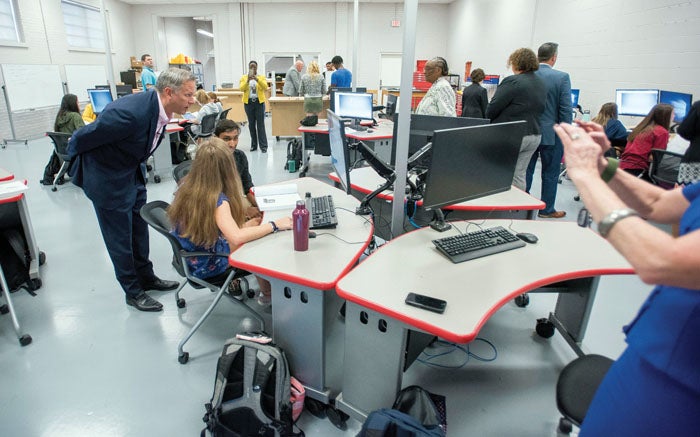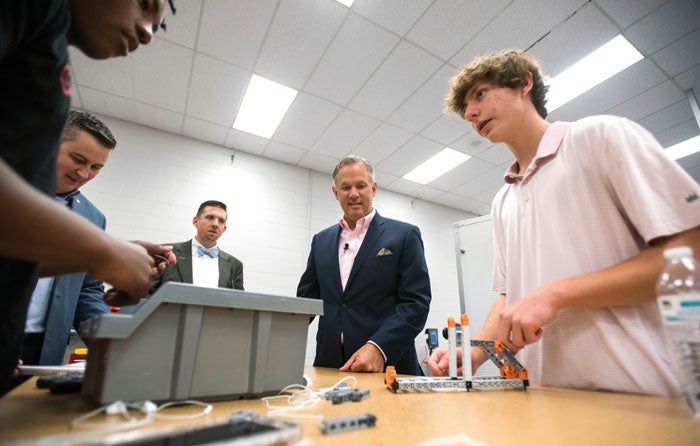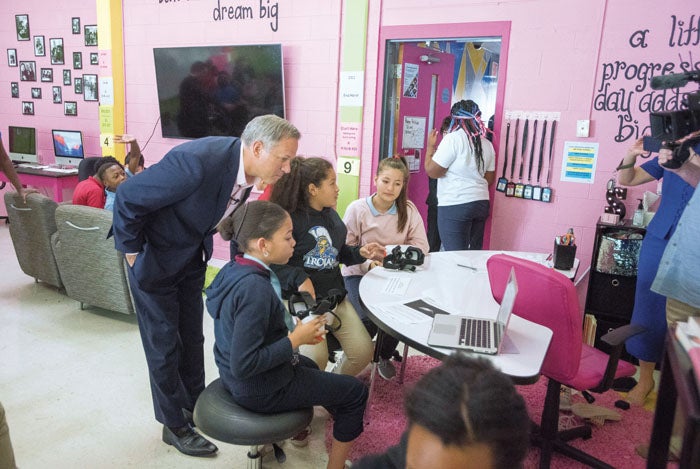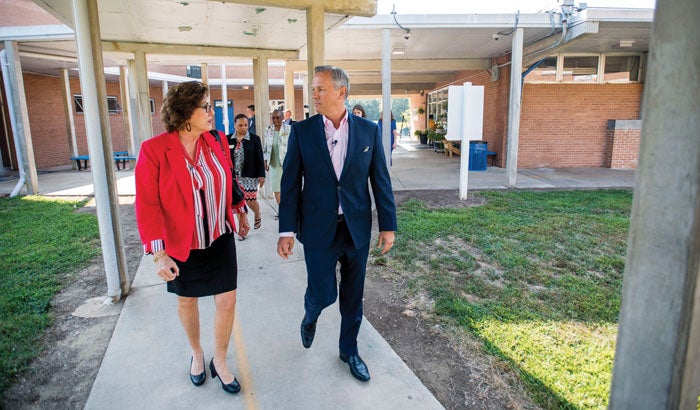Lt. Gov. Dan Forest learns about ‘renewal’ with school visits
Published 12:00 am Wednesday, September 18, 2019
SALISBURY — Walking into a classroom at Knox Center for Accelerated Studies, Lt. Gov. Dan Forest saw groups of middle school students learning about natural disasters and water systems and engaging with each other and the teacher, Sally Schultz.
On Tuesday morning, Forest toured both Knox and Salisbury High School to get a glimpse into the second year of the “renewal” school system, the first in the state.
Rowan-Salisbury Schools Superintendent Lynn Moody and school board members joined, jumping from table to table to ask students what they were learning. Moody said Forest had requested a visit to get a better understanding of the system and the successes and challenges that accompany renewal status.
“His main question is, ‘How’s it going?’” Moody said.
After visiting a classroom, Forest went in a closed-door meeting with the school’s teacher-led design team to learn more about the progress.
“These teachers are innovators in the classroom, and along with that comes with risk,” said Forest, a Republican who is running for governor in 2020. “They don’t want to fail their students, and they’re not going to. They’re not going to do that.”
Dean Hunter, a school board member, said having the lieutenant governor inside a classroom allows him to see what Rowan-Salisbury Schools is doing on the ground level. RSS is the only district in the state to receive system-wide charter-like flexibility with curriculum, funding, personnel, calendar and scheduling.
Forest said he has been excited about the “renewal” model for years because it allows more control at the local level. When he tours other public schools in the state, Forest said, teachers often ask why they can’t have the same flexibility as a charter school.
“The hope is you open this model up,” Forest said. “The hope is that other school districts will say, ‘Hey, we want to do the same thing that Rowan did and we want to change our model, because we see the success that’s happening here.’ We need our schools to be innovators.”
Moody said she hopes Forest and others understand that renewal is a five-year process.
“When we started off this journey, we said it was a five-year journey,” Moody said. “It’s going to take every bit of five years to redesign all the systems that are involved and transform an education system. Giving us support and asking for all the players, so to speak, (to be) at the table to also help us in this work would be very meaningful.”
Forest said he’s curious to see what renewal looks like in the future and how its success will be judged, but he said he knows those answers will come with time.
“Time is going to prove this is going to be a successful model,” Forest said. “I’m convinced it will be successful, but time will prove that.”
Salisbury High School Principal Luke Brown said educators have been working nonstop for a year and a half creating a plan. The design team is dedicated to the process, Brown said.
Forest saw inside a classroom where students were busy learning mechatronics, project management, robotics and engineering. The students have a deadline but the teacher doesn’t give them a pacing guide or tell them what order the components need to be done in.
“That’s real-world,” Brown said. “I think that’s the biggest transition between traditional school. What we’ve known as traditional and what we’re doing with renewal is we’re trying to create globally competitive students that can think and work in any scenario.”
Michael Courtwright, the principal at Knox, said seeing inside a classroom shows that “renewal” is creating opportunities for success because there is less concern about teaching to a test and instead to the needs that students have and the goals they want to accomplish.
Brown described the renewal system as “creating the holistic child that can walk through and be successful in whatever they decide to do.”
Forest said he would like to find ways to eliminate some of the testing, especially exams that are only used for data.
“A student isn’t a data point,” Forest said. “A student is a living, breathing human being with a lot of different aspects that make them who they are and the teachers have to discover that and data doesn’t do that for them.”
Moody said people across the state will say all eyes are on them, but the student’s eyes are what matters most.
“We have to keep our ‘Why?’ mind. Our why is because we want to do this for our students’ benefit, and if we’re doing that then all the other adult issues go to the side,” Moody said. “As long as we stay focused on trying to personalize our education and have our students engaged in a different way, then it will fall in line.”
Forest echoed what Moody and the school’s teachers said, that it is hard work, but he sees the excitement that comes from the teachers and the students.
“All of this is brand new, but I think it’s going to be great for the kids in the end,” Forest said.






